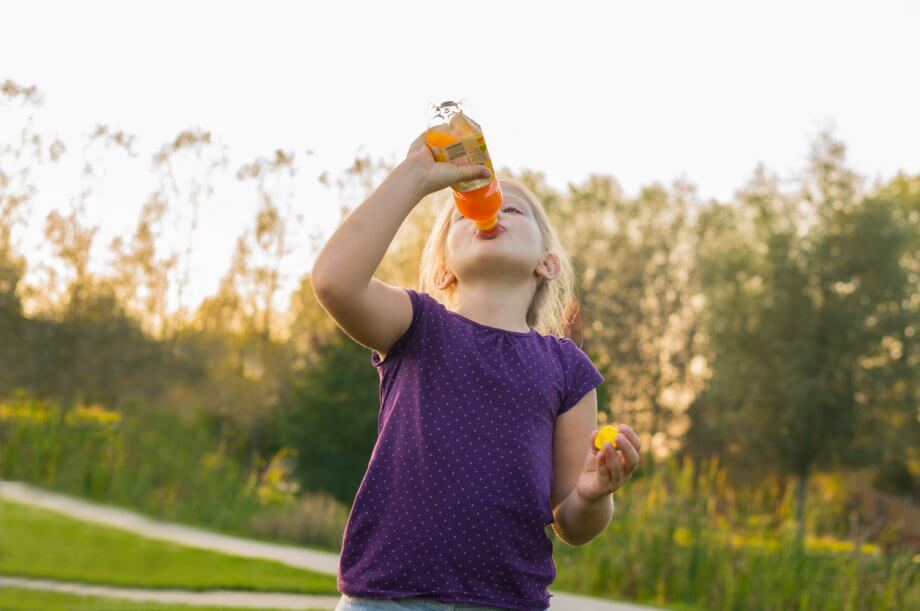Many children who participate in athletics––and even those who don’t––consume large amounts of sports drinks. A lot of parents are under the impression that these drinks are healthier alternatives to soft drinks, and while the electrolytes they contain can be beneficial, they’re not good for dental health at all. Here’s why.
Sports Drinks Are Loaded With Sugar
Those big bottles of kid-friendly neon colored drinks are no better than juice and soda––while the perception is that they’re healthier, they’re often even higher in sugar than other soft drinks. The theory behind the high sugar content, which is usually delivered in the form of sucrose or high fructose corn syrup, is that these carbohydrates help boost energy and performance. There are certainly better ways to help fuel your child through their activities than having them load up on sugar, though.
The bacteria that lives in the mouth thrives on sugar, so sports drinks can cause this bacteria to proliferate. All that bacteria combines with food debris to form plaque on the surfaces of the teeth, which can cause cavities and gum disease.
Sports Drinks Are Highly Acidic
Bacteria causes cavities because it releases acid into the mouth. This is bad news when you consider that sports drinks are very acidic to begin with, making them a double-whammy when it comes to oral health. Citric acid is used in sports drinks as a preservative and to boost their flavor. Unfortunately, it also wears away tooth enamel, making teeth more sensitive and prone to decay.
Sodas, too, are acidic, but just like with sugar, sports drinks are often just as bad, if not worse. And they’re stealthy about it too, since most people know that soda is acidic, but assume sports drinks are a healthy alternative. Sports gels, chews, and gums are often high in acid too, so they have the same effect.
Alternatives to Sports Drinks
Unless your child is an elite athlete, good old water is probably sufficient to keep them hydrated during activity. To replace electrolytes, a snack of bananas or watermelon can do the trick, or choose watermelon juice or coconut water over sugary, acidic sports drinks. These options will help your child rehydrate and replenish their electrolyte stores.
If your child insists on sports drinks, have them rinse their mouth with water after they’ve finished their drink. Divide the large bottles sold in stores into smaller eight-ounce portions. Give them a straw to limit contact with teeth or ask them to slip slowly, with pauses between sips. It might be counterintuitive, but you also want to make sure your child doesn’t brush right away after having a sports drink, because the act of brushing can spread acid to all of the teeth in the mouth; instead, have them wait at least 30 minutes.
Schedule a Dental Check Up
If you’re concerned about how sports drinks are impacting your child’s dental health, contact us at 908-735-6300 to schedule an appointment with Dr. Mary Jo McGuire.
